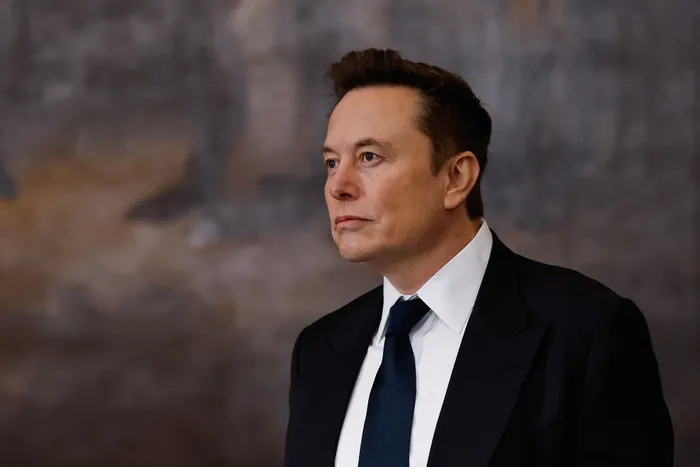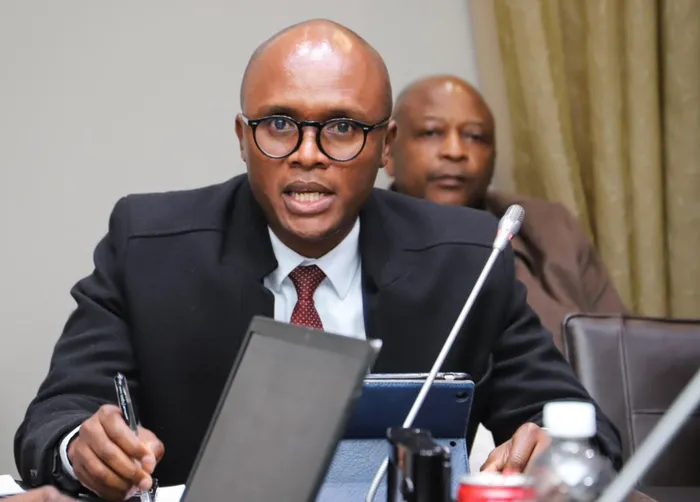
Elon Musk has previously claimed Starlink was barred from operating in South Africa because he is not Black, an allegation South African officials refuted.
Image: AFP
COMMUNICATIONS and Digital Technologies Minister Solly Malatsi's policy directive that could pave the way for Starlink satellite internet service to operate without the requisite BBBEE laws means the country's sovereignty has been held at ransom by people who have been throwing insults against it.
"We are not against Starlink or the investment but against the changing of our laws to accommodate individuals and people who do not respect the country and its laws. We would have lost the country's sovereignty as no one is exempted from complying with the laws of the country,” said Black Business Council (BBC) CEO Kganki Matabane.
He was reacting to reports that Starlink, owned by Pretoria-born billionaire Elon Musk, might operate in South Africa without meeting the 30% HDG (historically disadvantaged groups) ownership requirement in the ICT sector - through an Equity Equivalent Programme (EEP).

According to Minister Solly Malatsi, easing B-BBEE licensing requirements will “harmonise legislation” and boost competition, supporting the government’s mission to expand reliable broadband access to underserved South African communities.
Image: Supplied
Malatsi's gazette under the Electronic Communications Act (ECA), a day after President Cyril Ramaphosa returned from his White House meeting with US President Donald Trump and Musk, has come under intense scrutiny.
During this meeting, South African billionaire Johann Rupert, who was part of Ramaphosa’s delegation, told Musk that the country needed to have a starlink satellite in every police station.
However, Malatsi’s spokesperson Kwena Moloto denied that the directive was drafted to allow Musk to bypass regulatory requirements and said the timing of the publication was a coincidence.
Moloto said the minister is empowered by the EIPs, provided for under the Broad-Based Black Economic Empowerment Act (Act 53 of 2003) and the ICT Sector Code, to initiate the directive.
"The minister is empowered by the BEE Act which allows qualifying multinationals to meet empowerment obligations through alternatives to 30% ownership - such as investing in local suppliers, enterprise and skills development, job creation, infrastructure support, research and innovation, digital inclusion initiatives, and funding for SMMEs."Despite the legal standing of the ICT Sector Code under the BBBEE Act, ICASA’s Ownership Regulations do not fully reflect its provisions - particularly regarding deemed ownership and EEIPs. Therefore, this policy direction aims to ensure consistency, unlock investment, and give practical effect to the ICT Sector Code in line with national development goals, including transformation," Moloto said.
Musk, who is also part of Trump’s Make America Great Again (MAGA) team, has been leading the charge with false claims that there was white genocide in South Africa. They falsely claimed the signing of the Expropriation Bill into an Act was a way for the government to seize land from whites.
Opposition parties have maintained that the US’s hostile treatment of South Africa under the Trump administration was another way of pressuring the Ramaphosa-led government to accommodate Starlink.
Build One South Africa Deputy president, Nobuntu Hlazo-Webster said if the government can bend the country's regulations for international businesses, it can do the same for the country's businesses.
"BOSA calls on Malatsi, to make public the record of decision in this matter, so as to assure the people of South Africa that this was not a back door deal. This is not transformation, it’s capitulation.
"The message being sent is that if you are a powerful foreign billionaire, you can sidestep South Africa’s laws, while our local businesses are forced to jump through hoops. What begins with special concessions, ends in state capture," Hlazo-Webster said.
African Transformation Movement (ATM) leader Vuyolwethu Zungula called for the immediate withdrawal of the gazette saying: "This government gazette is nothing short of a shameless sellout to American oligarchs Elon Musk and Donald Trump - a move that spits in the face of our nation’s transformation agenda.
"By rolling out the red carpet for Starlink and other American corporations, the ANC/DA coalition is handing over our digital future to foreign hands, undermining local businesses, and betraying the very people they swore to uplift. This is not transformation, it is neo-colonialism dressed up as ‘investment’."
The MK party's spokesperson, Nhlamulo Ndhlela indicated that the party will not be taking the matter to court before it has exhausted all the parliamentary processes available which include requesting a formal legal opinion of the Parliamentary Legal Services in a bid to assess the constitutionality and procedural legality of the directive.
"We are attending a Department of Communications and Digital Technologies Portfolio Committee meeting in Parliament on Tuesday morning with the Minister. We will then make a determination from there,'" Ndhlela stated.
Cape Times